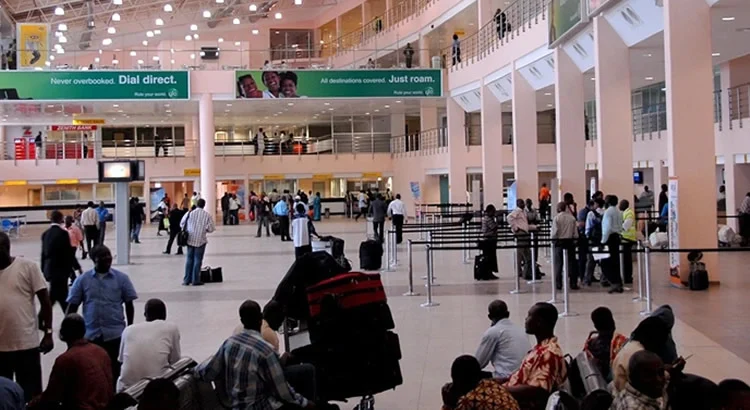Scarcity of aviation fuel, also known as Jet A1, in the northern region of Nigeria has pushed the price to N800, circling back to the level it was at the end of the first half of 2022.
Dependent on availability, aviation fuel prices vary across regions in Nigeria. In Lagos Airport, where there is no report of scarcity, the product sells for N780.
Join our WhatsApp ChannelBut the rate is higher in other parts of the country. The same commodity was priced between N650 and N700 per litre in October, after soaring to as high as N850 per litre and as low as N800 in June.
Airline Operators of Nigeria (AON) have blamed the government’s decision to refine aviation fuel outside the country due to deplorable refinery.
What you need to know
The rise in aviation fuel will affect ticket prices across the country, as domestic and foreign airlines will pass on the extra cost to air passengers to save their earnings from the expense burden.
Already, the average price of air transportation in Nigeria, according to the National Bureau of Statistics (NBS), rose by 77 per cent in one year, from N36,805 in August 2021 to N65,042 in August 2022, for specified single route journeys.
NBS data covering August disclosed that air passengers N76,000 and N70,500 respectively to fly to Delta and Adamawa states, making it the highest ticket price for specified routes on a single journey in August this year.
“In August 2022, Delta had the highest air transport fare (for specified routes single journey) with N76,000.00, followed by Adamawa with N70,500,00, while Jigawa, Nasarawa, Osun, Niger, and Gombe recorded the least with N60,000.00 each,” NBS said.
With aviation price now heading towards its position in June, the air passenger ticket price will skyrocket along with Jet A1 going into the festive period in December 2022 and January 2023.
Why do domestic airlines always face aviation fuel scarcity?
Failure to sign long-term contracts: In the aviation market, there are two types of airline operators, international and domestic airlines. The former hardly complains of shortage of aviation fuel, but the latter always does.
Prime Business Africa (PBA) understands that the reason is due to foreign airlines purchasing Jet A1 for the long term, but their domestic counterparts only buy when needed. This difference in contracts often forces oil marketers in Nigeria to prioritise international airlines, allocating significant volume to foreigners, even when domestic airlines need aviation fuel.
PBA learnt that due to the long-term contract signed by foreign airlines with Nigerian oil marketers, changes in the price of Jet A1 hardly affect them, compared to the local operators.
So even if domestic airlines are willing to buy aviation fuel at N900, oil marketers have no choice but to sell to foreign airlines due to the long-term contract signed some years back, even though the agreed price is far below what the local operator is ready to pay presently.
As a result, local operators are left to jostle for what is left in the tank of the oil marketers after the foreign airlines have received their quota as agreed in the contract – this causes scarcity and a rise in aviation fuel prices.
It is also one of the factors that leads to the price of air tickets rising aside from the surge experienced in December and January.
Dollar sourcing: The scarcity of dollars also forces Nigerian oil marketers to snub local airlines in need of aviation fuel, as foreign airlines buy Jet A1 with dollars.
This is another way oil marketers source for forex amid low provision from the official foreign exchange market and premium rate demanded by the Bureau De Change operators in the black market.
Aviation fuel is not refined in Nigeria, it is imported. So, the oil marketers need dollars to purchase the commodity when brought to the Nigerian port and distribute to buyers who have paid in cash in advance, before considering those who requested on credit.
















Follow Us